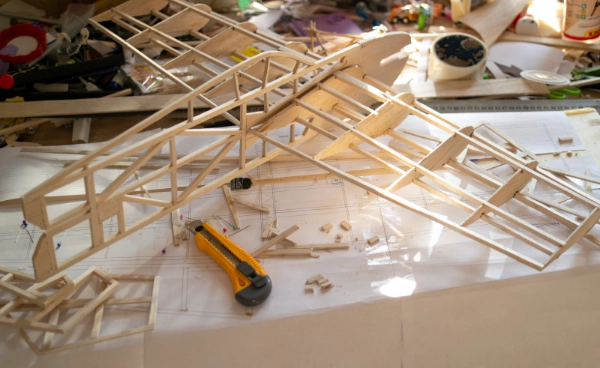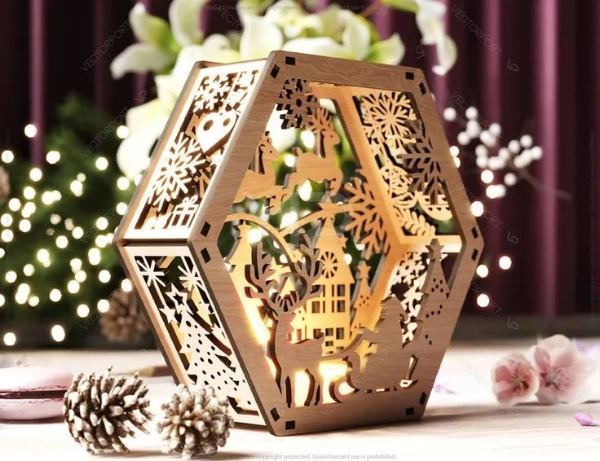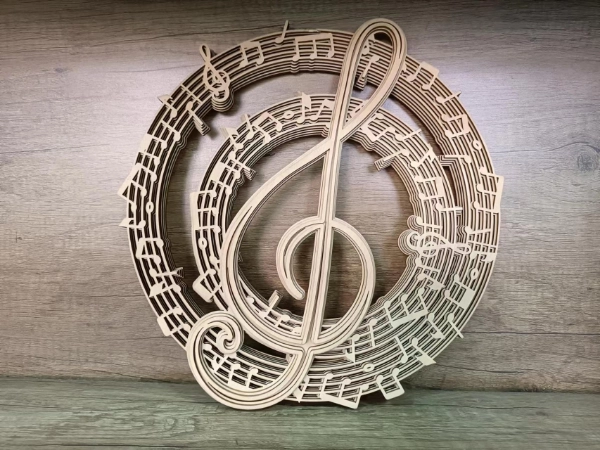Why a 3D Wood Laser Cutter is Essential for Your Makerspace?
In the rapidly evolving world of innovation and creativity, makerspaces have become hubs for experimentation and craftsmanship. These spaces, often filled with cutting-edge tools, foster the spirit of DIY (do-it-yourself) and enable hobbyists, students, and entrepreneurs to turn their ideas into tangible creations. In this blog post, as a high quality creality laser cutter supplier, Good-Laser will share the benefits of 3D wood laser cutter for makerspace, how it can increase the quality of your projects, improve your workflow, and unleash your creativity.
What is a 3D Wood Laser Cutter?
A 3D wood laser cutter combines the precision of laser cutting technology with the three-dimensional capabilities of CNC (computer numerical control) machinery. It' s specifically designed to cut, engrave, and even sculpt wood with extreme accuracy. Unlike traditional cutting methods, the laser cutter uses a focused beam of light to vaporize the wood surface, leaving behind clean, smooth cuts without the need for physical contact.
These machines can handle various wood types - such as plywood, MDF, and hardwood - making them highly versatile tools for a wide range of projects, from intricate designs to functional prototypes.
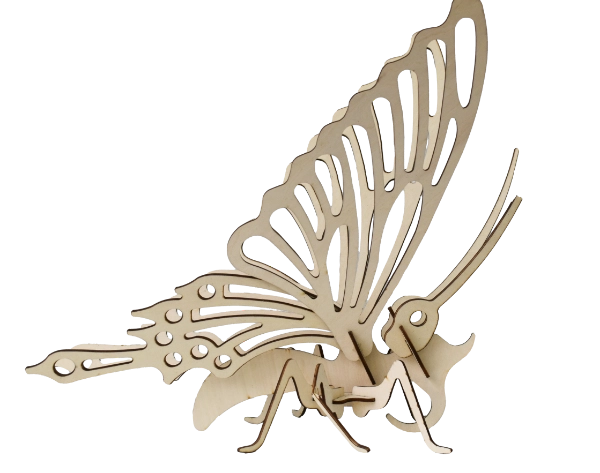
Benefits of 3D Wood Laser Cutter for Makerspaces
1. Precision and Detail
One of the standout features of a 3D wood laser cutter is its unparalleled precision. The laser can cut through wood with millimeter-level accuracy, which is crucial when working on projects that demand high levels of detail, such as jewelry, scale models, or complex architectural designs. Whether you' re cutting delicate patterns or intricate engravings, the laser cutter ensures that every cut is sharp, smooth, and exact.
The ability to achieve this level of precision manually can be both difficult and time-consuming, especially with traditional cutting tools. With a 3D wood laser cutter, however, makers can achieve high-quality results consistently with minimal effort.
2. Enhanced Creativity with 3D Capabilities
Unlike conventional 2D laser cutters, many modern 3D wood laser cutters allow users to create objects with depth, curves, and intricate details. These machines are often equipped with advanced features such as adjustable bed height, rotary attachments, and 3D engraving capabilities. This means that makers can experiment with more advanced techniques, like engraving on curved surfaces or creating layered 3D structures.
The flexibility to manipulate designs in the third dimension opens up a whole new world of creative possibilities. Designers can prototype three-dimensional objects that would be difficult or impossible to create by hand or with traditional machinery. This can lead to the development of more innovative and imaginative projects, from interactive sculptures to functional furniture pieces.
3. Speed and Efficiency
Makerspaces are often busy environments, with numerous individuals working on different projects simultaneously. In such a fast-paced setting, efficiency is crucial. A 3D wood laser cutter can complete intricate cuts and engravings much faster than traditional woodworking tools, which require manual labor and setup.
The automation of the laser cutting process allows makers to save significant amounts of time, especially when producing multiple identical pieces, such as custom signs, furniture, or design prototypes. What would take hours or even days to accomplish with hand tools can often be completed in a matter of minutes, enhancing productivity and enabling creators to focus on refining their designs rather than spending time on repetitive tasks.
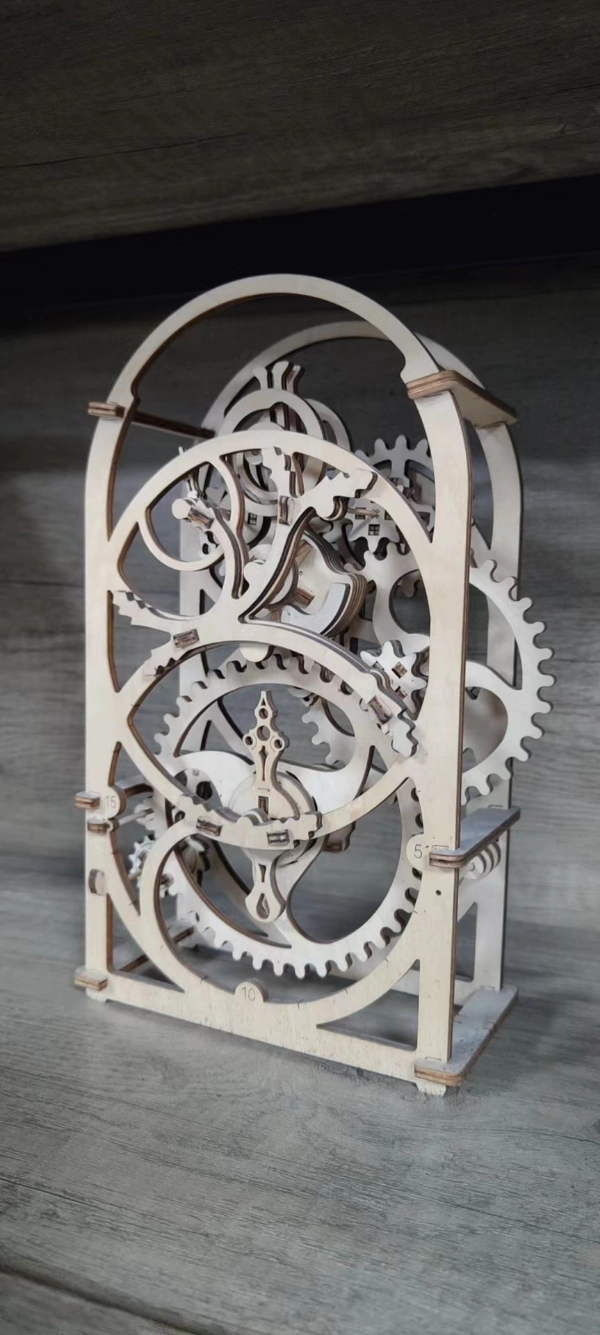
4. Minimal Waste
One of the challenges of traditional woodworking is material wastage. Whether it' s due to inaccurate cuts or inefficient planning, a lot of valuable wood can be lost in the process. A 3D wood laser cutter, however, is extremely precise and uses minimal material, as the laser beam only removes the wood that needs to be cut. This allows makers to optimize their wood usage, reducing waste and ensuring that resources are used efficiently.
Moreover, with the ability to digitally design and simulate projects before cutting, makers can plan their projects more effectively, avoiding errors and maximizing the use of each sheet of wood. For environmentally conscious makers, this feature of reducing waste can make a significant difference.
5. Cost-Effective Prototyping
Prototyping is a critical step in the development of any product, and having a 3D wood laser cutter in your makerspace can drastically reduce the time and costs associated with the prototyping process. Whether you' re testing a new design for a product or iterating on a concept, the laser cutter allows you to quickly create accurate prototypes without the need for expensive materials or complex tools.
This cost-effectiveness can be particularly valuable for small businesses, independent creators, or educational institutions looking to experiment without breaking the budget. Plus, the ability to produce multiple prototypes in quick succession helps in refining and perfecting designs faster.
6. Easy to Learn and Use
While laser cutting technology may sound complicated, modern 3D wood laser cutters are designed to be user-friendly. Many of these machines come with intuitive software that allows makers to upload their digital designs directly to the cutter. Additionally, many models are equipped with pre-programmed settings for different types of wood and cutting depths, making it easier for beginners to get started.
Makerspaces are all about learning, and having a tool like a 3D wood laser cutter can introduce new users to the world of digital fabrication and CAD (computer-aided design). With some basic training, anyone can quickly learn how to operate the machine and start creating impressive wood projects.
Conclusion
Incorporating a 3D wood laser cutter into your makerspace empowers makers to push the limits of woodworking. The precision, speed, and versatility of a laser cutter make it an invaluable tool for both new and experienced creators. Whether you want to improve your design skills, prototype new products, or just experiment with your creative ideas, a 3D wood laser cutter is an indispensable resource!


